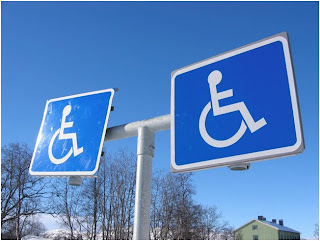
Please send this message to other interested people and encourage them to join the SC AT Exchange. The more people we have involved, the more equipment we can find for South Carolinians. Please note, too, that some of the items needed are low-tech items that would make a huge difference in an individual's ability to live independently.
We have a number of wheel chairs and scooters listed that can be obtained for only the price of batteries and we can help get the batteries installed. Please look at the list carefully and spread the word!
Note that we can try to help facilitate transportation of equipment, if that's needed. We can't promise anything, but it's always amazing who can step in to help! If you know you need and item and need help with transportation, email Janet Jendron at Janet.Jendron@uscmed.sc. edu
Below are new listings on our SC AT Exchange.
Needed Items
712 Wheelchair lift
716 Pediasure or similiar
720 Wheelchair Acces Van w/ ramp
754 Hydrolyzed formula
755 Interactive Learning System for Hearing and Visual Impaired
759 Z-Vibe
760 Colostomy Supplies
772 Power Wheelchair or Scooter
774 Bed Rails
813 Lite Gait for a treadmill
833 Tumble form chair, medium
836 Weighted Blanket
837 Van Wheelchair Lift
841 Big Mac switch
842 Stander Wheelchair
843 Tens Unit
844 Portable Ramp for Minivan
845 Bath Chair
850 Pediatric walker
852 Stroller for 8 year old
891 w/c lift for a truck
Free Items
724 Bedside Commode Columbia
726 Walker Columbia
728 Manual Hospital Bed Columbia
731 Bruno SRE-1500 Stair Lift Columbia
751 Adult Potty Chair Columbia, SC
752 Adult Potty Chair Columbia
753 Adult Folding Walker Columbia
757 Bionaire Digital Humidifier Columbia
758 Vicks Humidifier Columbia
764 PolarCare 300 Cold Therapy Unit Columbia
766 Shower Stool Columbia
767 Commode with Frame Columbia
768 Bariatric Power Wheelchair Columbia
771 CPAP Mask and Supplies Columbia
789 Bedside Commode Columbia
790 Bedside Commode Columbia
791 Portable Aerosol System Columbia
792 Large Print Telephone Columbia
827 feeding Syringes Irmo
828 Deep suction catheter 10 fr Irmo
829 Invacare Infinity Wheelchair Cushion
831 Superprint 4425 TTY Machine Columbia
839 Semi-Electric Hospital Bed Columbia
847 Urinary Self Catheters Mary Bailey Greenville
848 Stander Columbia
849 Small Manual Wheelchair Columbia
853 Similac Baby Formula Samples Columbia
857 CPAP System Columbia
858 CPAP System Columbia
859 CPAP System Columbia
860 BiPAP Machine Columbia
861 Bath Chair Columbia
862 Roller Walker with Seat Columbia
863 Shower Transfer Bench Columbia
864 Shower Transfer Bench Columbia
865 Powered Personal Lift Columbia
867 Suction Pump with Tubes Columbia
869 Invacare Pronto Sure Step M51 Power Wheelchair Columbia
870 Dry Mouth Washes and Swabs Columbia
871 Nova Walker Cruiser Deluxe Columbia
876 Large Trackball Columbia
878 Splint Switch Kit Columbia
879 Sealed Rubber Switch Columbia
880 Kangaroo Joey 1000 mL Pump Sets Columbia
881 CPAP System with Tubing Columbia
889 Tube Feeding Formulas Columbia
890 MediBeads Therapy Heat Pads Columbia
892 Canon Inkjet Printer Columbia
893 Libra 90 Trackball Columbia
895 Shoulder Cryo/Cuff Cooler and Boots Columbia
896 Medical Bed Table Columbia
897 Metal Crutches Columbia
898 Wooden Crutches Columbia
899 Hankscraft Humidifier Columbia
900 Shower Chair Columbia
901 Potty Chair Columbia
902 Transport Wheelchair Columbia
903 Raised Toilet Seat Columbia
904 Rollator Walker Columbia
905 Kaye Vertical Pediatric Stander Columbia
907 Rollator Walker Columbia
Items For Sale
702 Baby-Jogger for young adult/elders
703 Solara Tilt-in-space Wheelchair
704 Quickie Iris Tilt-in-space Wheelchair
705 Wheel chair lift for full size van
706 Heavy Duty Hydraulic up/down chair
707 Above Ground Pool Lift
708 Suction Catheters with Sleeves
709 Medline Suction Catheters without sleeves
710 Toothette Suction Toothbrush
711 Airlife Saline for Trache
713 Jet 3 Power wheelchair Gaston
714 60-70 Self Cath Kits 14 french North Charleston
715 Words Plus Pegasus Lite AAC device Columbia
718 20" Color Inline CCTV System Magnifier Mount Pleasant
721 Jazzy Pride Power wheelchair Columbia
775 Hoyer Lift Charleston
776 Hoyer Lift Charleston
777 Hoyer Lift Charleston
778 Permobile Standing Power Wheelchair Charleston
779 Quickie IRIS Reclinging Push/Wheelchair Charleston
780 EZ Access Trifold ramp Charleston
781 Standing Walker Charleston
783 Invacare Hospital Bed Charleston
784 Arm strengthening slide board Charleston
785 Invacare shower chair Charleston
786 Portable Shower Chair Charleston
788 Jet 3 motorized wheelchair
800 Convaid Transit EZ Rider 18
801 Rifton Toilet System
802 Kaye Posture Control Walker
803 Invacare Portable Patient Lift 9805
804 Invacare Walker with Right arm support
805 Sunrise Zippie 2 Manual Wheelchair
806 Thermovent Portex heat & moisture exchanger
807 Farrel Bag
808 Kangaroo feeding pump bag
809 Duocal Energy Source
810 Ensure Plus
811 Bone Health Milk
830 Communicator Carrollton, TX
838 fr Cure Catheter Complete Kit Female North Charleston
840 Home with Accessible Features for Rent Moncks Corner
866 Permobile C300 Powerchair Lucy Anne Adams Enoree
868 Action Ranger Storm Series Power Wheelchair Columbia
872 Invacare Storm Torque 2GTR Power Wheelchair Columbia
873 Pride Jet 3 Power wheelchair Columbia
874 Pride Legend 4 wheel Scooter Columbia
NOTE: To join the SC AT network, and to find more information, click on the title above.











